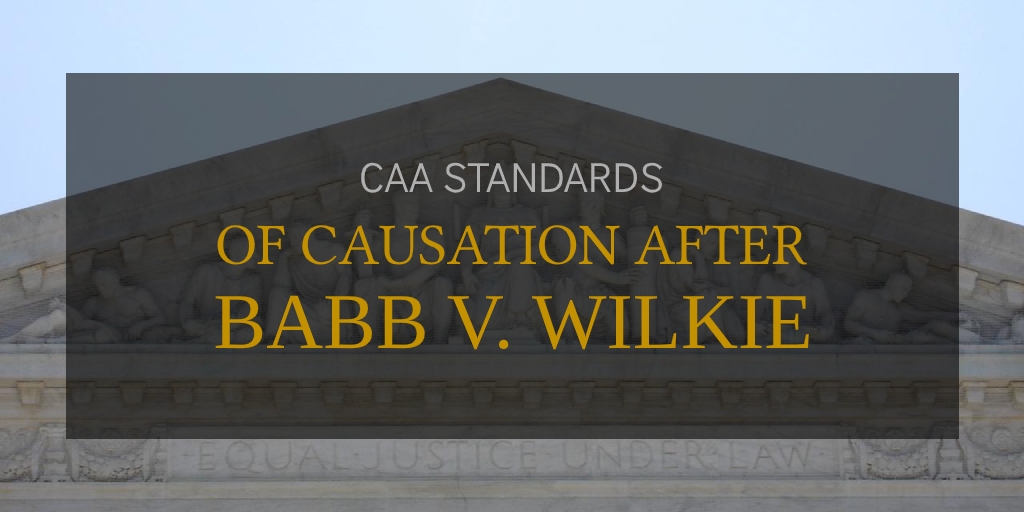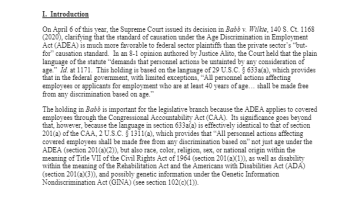I. Introduction
On April 6 of this year, the Supreme Court issued its decision in Babb v. Wilkie, 140 S. Ct. 1168 (2020), clarifying that the standard of causation under the Age Discrimination in Employment Act (ADEA) is much more favorable to federal sector plaintiffs than the private sector’s “butfor” causation standard. In an 8-1 opinion authored by Justice Alito, the Court held that the plain language of the statute “demands that personnel actions be untainted by any consideration of age.” Id. at 1171. This holding is based on the language of 29 U.S.C. § 633a(a), which provides that in the federal government, with limited exceptions, “All personnel actions affecting employees or applicants for employment who are at least 40 years of age… shall be made free from any discrimination based on age.”
The holding in Babb is important for the legislative branch because the ADEA applies to covered employees through the Congressional Accountability Act (CAA). Its significance goes beyond that, however, because the language in section 633a(a) is effectively identical to that of section 201(a) of the CAA, 2 U.S.C. § 1311(a), which provides that “All personnel actions affecting covered employees shall be made free from any discrimination based on” not just age under the ADEA (section 201(a)(2)), but also race, color, religion, sex, or national origin within the meaning of Title VII of the Civil Rights Act of 1964 (section 201(a)(1)), as well as disability within the meaning of the Rehabilitation Act and the Americans with Disabilities Act (ADA) (section 201(a)(3)), and possibly genetic information under the Genetic Information Nondiscrimination Act (GINA) (see section 102(c)(1)).
II. Babb v. Wilkie
Babb came to the Supreme Court on appeal from the 11th Circuit, which affirmed – albeit reluctantly – the district court’s decision in favor of the employer.

